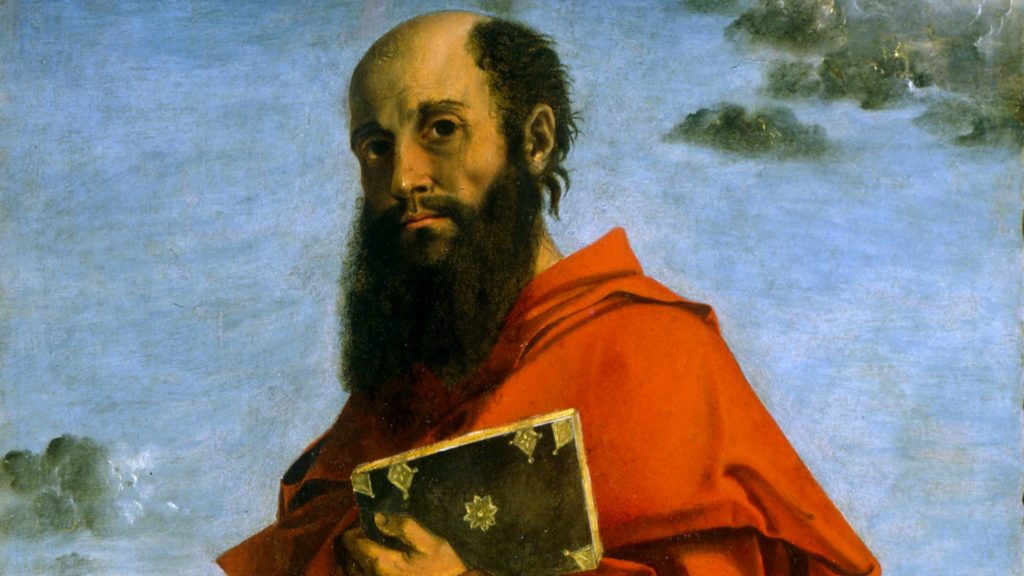Early Church historians tell us that St. Paul was short, perhaps little more than five feet. But he stands before us as a giant. The achievements of Alexander the Great, Caesar Augustus, Shakespeare, and Einstein seem small when compared to those of Paul. C.S. Lewis imagined that an encounter with him, even in heaven, would be “rather an overwhelming experience.” He recalled that “when Dante saw the great apostles in heaven they affected him like mountains.”
Some scholars argue that, if he had gone into philosophy, he would have surpassed Plato and Aristotle. But he was not just a thinker. He was a pastor as well, and a missionary. He traveled far and wide to win souls. He negotiated for the peace of the Church. He corrected and encouraged people. He preached and he wrote with passion and wit. He suffered much and, ultimately, he died for the cause. He aimed to extend the reach of Christianity through all the western lands of the Roman Empire. And he succeeded to an astonishing degree. By the end of his life, Christianity enjoyed a worldwide presence. Within a century — largely due to the momentum of Paul’s preaching — the Church had grown so large that it was perceived as a threat to the Roman social order.
That was his first revolution, but not his last. He has emerged repeatedly down the millennia as a fresh voice, compelling preachers, rulers, and ordinary Christians to see a new way of living. In the fifth century, St. Augustine rethought the world along lines that he discerned in Paul. In the 16th century, Paul’s letters were at the center of the controversies of the Protestant Reformation and the Catholic Counter-Reformation — controversies that reshaped the world.
It’s hard to exaggerate Paul’s importance, though some people do. He was not the “founder of Christianity” or its “inventor,” as some contend. Christ himself founded the Church, and he founded it on another apostle: St. Peter. But Christ did call Saul of Tarsus and commissioned him to receive the Gospel and take it to the world. Paul gratefully acknowledged his debt not only to Jesus, but to the apostles Peter, James, and John (see Galatians 1:18 and 2:9). So, though Paul did not found the Church of Jesus Christ, he founded many churches in Jesus’ name.
But, uniquely inspired by God, he developed a theology of the Church that was authoritative. The Church’s self-understanding is dependent upon the words of Paul. We cannot understand ourselves as Christians unless we see ourselves in the light of his letters.
I’ve read and taught all of Paul’s letters many, many times. And he has taught me how to think and what to believe more than any other human. I’ve stood where he was beheaded; I’ve knelt next to his mortal remains. I have spoken to him in prayer and asked him for favors hundreds of times.
Paul is not my Savior, but he may be the most thoroughly saved sinner, and that makes me want to be more like him.

